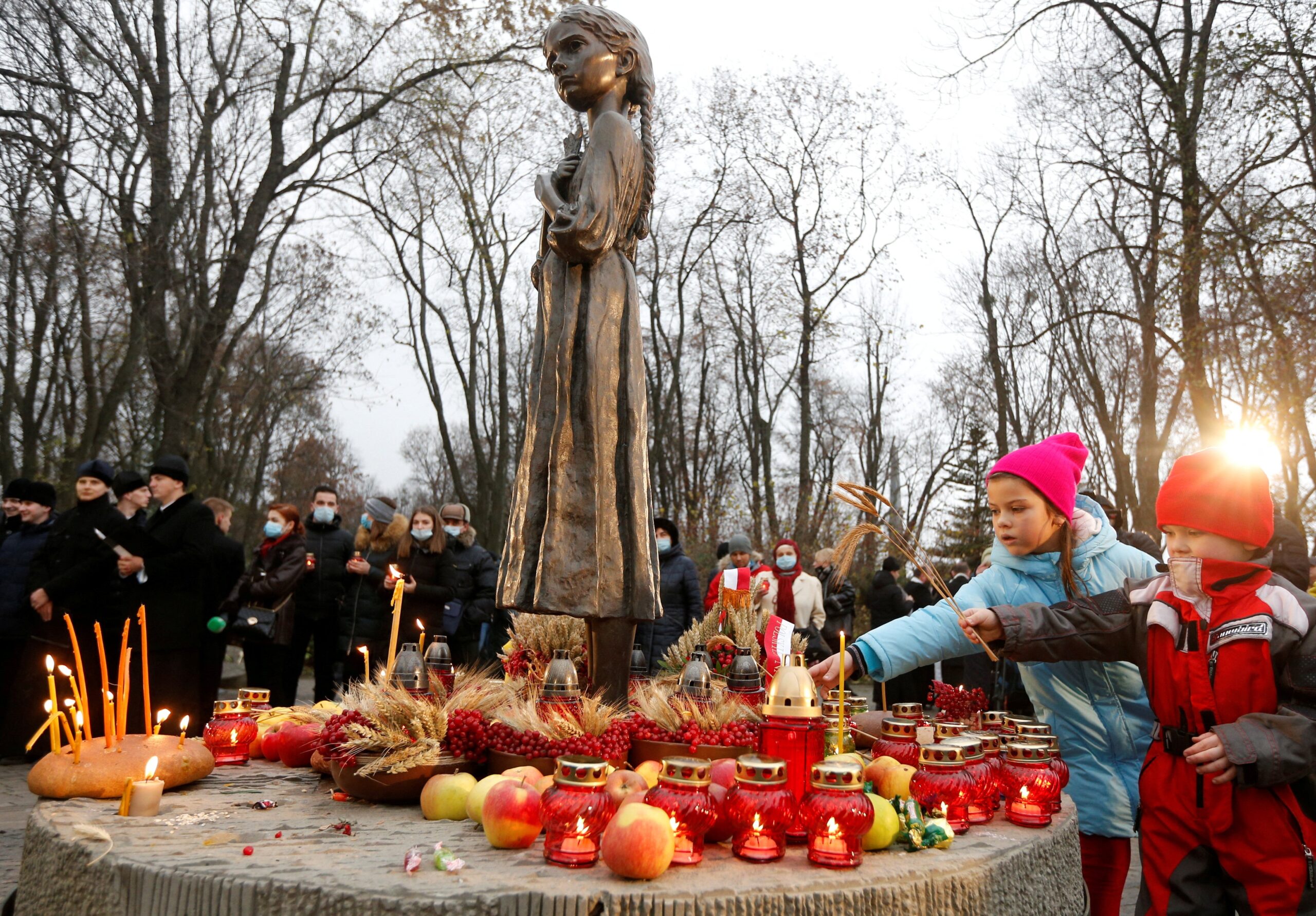Ukrainian American deacon urges prayers for Ukraine in winter months
ST. LOUIS (CNS) — Ukrainian Americans and newly arrived Ukrainian immigrants in the Midwest spent the last Sunday of November commemorating the 1930s Soviet-engineered famine in Ukraine.
They also heard a warning that history is likely repeating itself: Russian President Vladimir Putin continues to order attacks on Ukraine’s power grid and water supply as winter gets underway.
“There is a great deal to think about in terms of if Ukraine survives this war and, in spite of my faith, I begin that statement with the word ‘if,'” said Deacon Eugene Logusch, a pastoral administrator for both St. Mary’s Assumption Ukrainian Greek Catholic Church in Concord, Missouri, and at St. Mary’s Protection Ukrainian Greek Catholic Church in Madison, Illinois.
Deacon Logusch, a child of Ukrainian immigrants and now retired after a career in chemistry and teaching, told about 40 Ukrainian parishioners gathered at St. Mary’s Assumption Nov. 27 that he hopes the world fully appreciates the long-standing and well-established territorial ambitions of Russian expansionism.
READ: Quilters make and donate quilts to kids in Ukraine
He also said the Russian actions could eventually impact the U.S. directly — and certainly the rest of Eastern Europe and other regions — if left unchecked.
The Associated Press reported Nov. 27 that Russian forces struck eastern and southern Ukraine early that day as utility crews scrambled to restore power, water and heating with the onset of snow and frigid temperatures.
Analysts predict the freezing wintry weather blanketing Ukraine battlefields will influence the conflict. Both sides were already facing complications from heavy rain and mud.
“This is just like on the eve of World War II, the dangers facing the West, facing America and facing democracy were not just something over in Europe, and it took some time for that idea to gain the fullest support and understanding in the United States,” the deacon said.
He said he learned about the 1932-33 Holodomor famine from his parents. That famine is said to have killed millions of Ukrainians and was part of a wider Soviet famine that scholars have suggested was planned and executed by Joseph Stalin in order to thwart Ukrainian aspirations for independence.
Repeating a popular phrase that those who cannot remember the past are condemned to repeat it, Deacon Logusch noted that Ukrainians throughout the world gather in late November to commemorate the Holodomor famine and to pray for peace in Ukraine.
“We are having to learn that truth very harshly right now,” he said, adding that he hoped others in the community would join them in prayer and remembrance in the coming months as Ukraine faces a difficult winter.
St. Mary’s Assumption, part of the Ukrainian Catholic Eparchy of Chicago, has been home to several waves of Ukrainian immigrants over the last century and is again active in assisting newly arrived Ukrainians — mostly women and children — resettling in the U.S.
There are also at least two men from the church community who have traveled to Ukraine this year to support the war effort there.
Jesuit Father James Deshotels, who celebrates Mass for the Ukrainian community at St. Mary’s Assumption, said the St. Louis area has hosted dozens of Ukrainian families this year, and more are arriving on a regular basis.
“We have families who have opened up their houses to mostly women and children because every man between 15 and 60 has to stay in Ukraine. Probably dozens of refugees are already here, but there are no (refugee) camps — even in Europe there are no camps.”
As for the harsh winter circumstances Ukraine now faces, Father Deshotels believes the Ukrainians will pray and improvise their way through current hardships if it means keeping Russian aggressions at bay.
“There is a feeling that God is on their side, and if there was ever a war in which you can reasonably say that, this would be one,” the priest said. “The aggression is just so obvious, and the Ukrainians have done nothing to provoke or justify it.”
Father Deshotels said he thinks that, both publicly and in smaller ways, American Catholics are stepping up to do what they can for Ukrainians and that the St. Louis region has risen to the occasion several times before, when hosting Bosnian and Croatian refugees in the 1990s and now with the Ukrainians.
One leading member of the St. Louis-Ukrainian community, Galyna Johnston, 32, said she moved to the U.S. seven years ago to join her fiancé when Russia was already actively invading the Crimea peninsula and Donbas region of Ukraine.
In recent months she has put her social media and graphic design skills to work by promoting local Ukrainian fundraisers and events in the St. Louis region and by maintaining a Facebook group that serves as a digital outpost for newly arriving immigrants.
She noted that her parents and most of her family remain in Ukraine, refusing to leave, and so far have not suffered forced relocation or occupation.
“I talk to my mom every day to make sure that they are safe and that they have everything they need. Ukrainians have historically been robbed of comfort: multiple wars, oppressions, the Holodomor famine were all unfortunately very common, but none of those were able to break our spirit,” she said.
“My mom always tells me we will take any discomfort over the Russian (occupation), and we are happy as long as we are united and free. And I know she speaks for a lot of people in the same situation.”
Featured image: Children in Kyiv, Ukraine, place ears of wheat as they visit a monument to Holodomor victims during a commemoration ceremony Nov. 28, 2020, marking the 87th anniversary of the famine of 1932-33 in which millions died of hunger. (CNS photo/Valentyn Ogirenko, Reuters)



